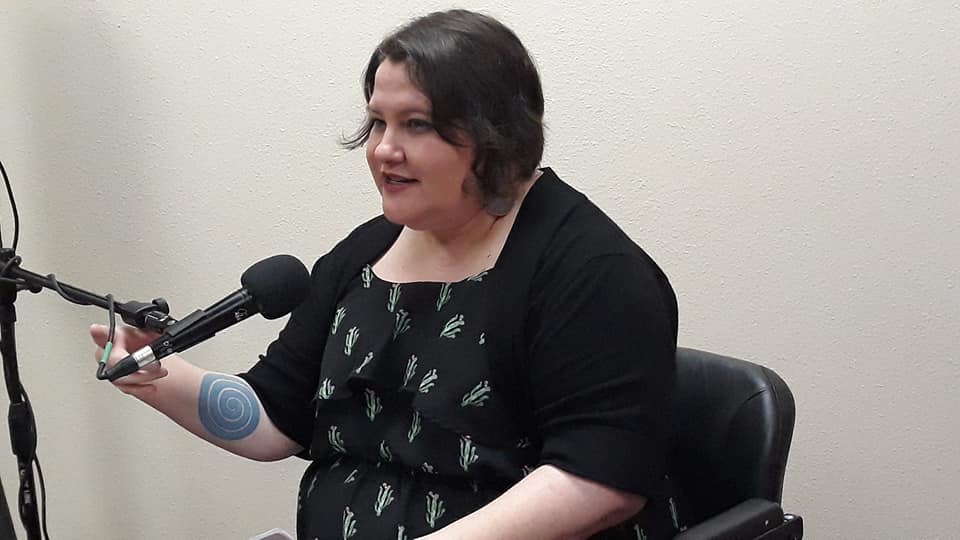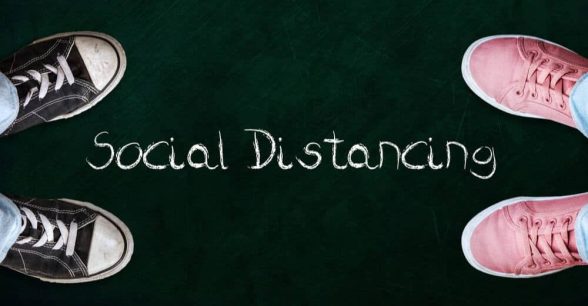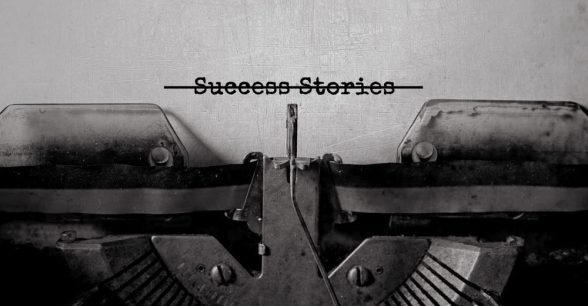Why I No Longer Provide Free Disability Access Advice
This morning I did a cold count of places and people I have provided with free disability access information—sharing hard won knowledge grown from my experience and skills putting on accessible events, workshops and doing long-term organizing projects.
Pulling up emails from the last few years, I counted over 45 organizations, community events, art museums and galleries, CSA’s (community supported agriculture farm share programs), community theater groups, University of Arizona-related entities, festivals, restaurants, coffee shops, cultural community groups, community groups geared towards youth, art residencies, national park outreach centers and local print magazines.
Many of these interactions went beyond providing initial disability access information, requiring ongoing free labor and advice. Out of all of these groups, institutions, museums, restaurants, festivals, art entities, and cultural groups, only two have made lasting access changes.
Hundreds of hours of work to negotiate my right to access a space – and after years of this effort, I can only go to one community event whose leadership so far has prioritized access, and one established and permanent museum.
This time and advice I have provided has also included the heavy emotional labor of having to deal with resistance. People have angrily shouted at me that disabled people don’t ever attend their event, a ramp is too expensive, or that I should fundraise if I want sign language interpreters. Then there are the absurd reasons why they don’t want to make changes to include disabled folks. Reasons such as, “but people (nondisabled people) love the ambience!”
In my body, I hold my anger, not wanting to lash out at them. Sometimes I lose sleep because I feel the strain of pushing for inclusion, where someone really thinks that I am the problem.
On and on, I inquire about access and then am asked to provide help to make it accessible, to only end up feeling like I’m negotiating my worthiness to be there. People start out so enthusiastic. They want the resources and they swear they want to understand. However, as we move forward, and they realize, for example, that so few local event spaces are wheelchair accessible, they then get discouraged and blame me for their frustration.
Occasionally, access changes are made for one event, meeting, or evening and then slowly, things go back to the way they were. Inaccessible. In some ways, providing this free labor and seeing changes enacted and then neglected is more painful. My relationship with organizers can also become complicated. Often, I am left out of social opportunities because they see me as an enforcer of access that they are no longer providing. I become, in their resentful eyes, the disapproving “access matron” that no one likes to be around.
For many years, I thought that if I was patient or provided better information, or perhaps if I developed social relationships with people first, or helped community groups understand that disabled people are part of their cultural, social, artistic communities, that this would create investment in the idea and practice of disability access. Instead, people often felt like they could disregard disability inclusion more readily because they had a relationship with me, or they would suddenly cut me out of their lives if I called them on it. More of my labor gone to waste.
I started this piece out saying that I no longer provide free access labor and advice (emotional labor). Yet, as I write these words, I realize that I am done with providing this labor at all. There are very few enforcement mechanisms in the community I live in. The city does not have an Americans with Disabilities Act (ADA) coordinator, the place to complain about structural access is buried in a deep layer on the city website, and disability community is not organized here.
I’ve been slowly gathering disabled friends, making connections with disabled folks in town, trying to organize a collective group of people to protest or demonstrate the need for access at events, museums, and nonprofit organizations. Yet for many structural reasons, including ableism and poverty, folks do not have the energy to come together in this way right now.
As with most disabled folks, there is a strong thread of internalized ableism that cuts us off from our power because many of us believe that the burden of access is on us. This is reinforced by our Latinx cultural norms of being included, but often in a way where the expectation is that we are silent, and do not take up social space. Many of us live with family, not in institutions, but often, a lack of access is immediately interpreted by the family unit as the inability of the disabled person to participate.
As I try to chip away at these beliefs of disabled folks in the city I live in, we all also continue to experience the simultaneous exclusion and discrimination that happens daily. The reinforcement that we are the problem comes from within the most intimate of places: our families and inevitably, our own hearts. This internalized ableism, this belief that we do not deserve access because we cannot magically provide it for ourselves, is reinforced daily by this community I call home.
There’s another voice in my head, the activist voice who believes that things don’t change without a fight. At a young age, through a series of seemingly random events, I was able to connect with a larger national activist community. This privilege instilled in me a sense of collective power and liberation. I had models of people who, through their actions and words, demonstrated disability life as dignity. This self-respect reinforced in the deepest, most shame filled places in my body that I had the right to be here and participate.
I want to honor this activist voice, especially because the rights that I do have, as one of the first generations to have the right to go to school, for example, were only gained because people organized and advocated for laws and then forced institutions to comply.
It’s a legacy that many of us with access to the world, only based on civil rights, live with. I want to honor this legacy. Yet despite all of my labor, I can’t seem to push hard enough, be intimidating enough, or demonstrate community strength enough, to make change. I am confronted with my own limitations as an activist.
As I accept my strengths, I also must accept the ways in which I am not wired. There will be days where I have the energy to push back or protest. Yet, slowly, I am coming to the acceptance that I am one who prepares the soil for the seed to be planted.
My strength is not in the labor of telling people how to do the work, but through supporting folks to figure out the ingredients that they can choose to enrich their soil in which true solidarity can grow. I plug away at my passion of addressing underlying issues that make people inflexible and burnt out. Part of this work, I remind others, is figuring out where and when to have boundaries.
For too long I have accepted abuse in my willingness to provide support. I am no longer willing to self-sacrifice in this way. I’m trying to pay attention to where efforts towards inclusion are happening and held by multiple hearts. Then I’ll know that this is a place for me.
About Rooted In Rights
Rooted in Rights exists to amplify the perspectives of the disability community. Blog posts and storyteller videos that we publish and content we re-share on social media do not necessarily reflect the opinions or values of Rooted in Rights nor indicate an endorsement of a program or service by Rooted in Rights. We respect and aim to reflect the diversity of opinions and experiences of the disability community. Rooted in Rights seeks to highlight discussions, not direct them. Learn more about Rooted In Rights




This is an important perspective and I will be forwarding through my networks!
Fabulously written- thank you for taking the time. You have expertise and deserve to be paid for your expertise. Advocating for change is exhausting- the alternative is exhausting too. I wish you well.
Thank you for this honest, deeply discovered set of insights about your personal journey in this context, as well as for the bigger issues you raise — issues that persist as you describe despite all the already hard-fought-for gains. Each generation not only stands on the shoulders of the previous activists’ work, courage, insights and sacrifices, but also needs to dig deep to keep strong and established the gains that have been made, and also tackle the next layer of what is still needed. When we step back or think it’s already done, we lose everything. You are so right, and your voice has made a difference to this writer.
Thank you @Naomi Ortiz for giving words for my long time frustration and at the same time empowering and giving strength to every day advocacy demanding my right to be part of the society!
Kudos! I wrote a similar article (https://www.linkedin.com/pulse/consulting-people-disabilities-janice-s-lintz/?trk=prof-post) after the Lower East Side Tenement Museum’s Advisory Board told me they didn’t need to pay me because I provided free advice as a Board member. I promptly resigned.
I started Hearing Access & Innovations after I realized I had become the free salesperson for countless companies who were getting rich off my advocacy. Plus, people value what they pay for, and when your time is free, museums needed everything in writing and dragged out projects. When the clock was ticking, they became cost efficient. I realized their strategy was to wear me down to go away.
But the predicament becomes if I don’t advocate, the places don’t add the access. If I do, then museums like the Henry Ford Museum in Dearborn, MI claim, I am drumming up business, and my work is self-serving. So how do people with disabilities and their parents, get the access added, but also get paid for their time?
Same issues are faced here in Australia 🇦🇺 as well as under funding through out our disability advocacy groups and No disability legal advocacy groups to really speak of!.. So high incarceration rates for minor traffic issues/ right through to other serious issues like mental health and disabled people being incarcerated without legal advocacy or legal assistance and are behind bars without option of parole due to this very fact alone..! Breaching their rights under UN HUMAN RIGHTS OF DISABILITY & UN RIGHTS FULL STOP!.. High rates then of suicide in prison. Violence against disabled in community that often victim blamed by authorities and not investigated and also/ by carers and / or under reported for fear of retribution. Is also high abuse/ neglect in Aged care sector to and under reported for same reasons. Fear, manipulation by said carer, usually family member with financial interest which is a conflict of interest, or the Govt, Body Also conflict as financial interest to oversee assets in any guardianship/ administration orders if disabled/ senior labelled “unfit” to look after affairs. Cost to “over their own assets is 16.7% per annum. Which is huge gain to govt coffers. No independent body to investigate any issues?. Appalling situation for all. With no disability or senior advocacy in place as funding by said govt and their funding is reduced every year..!!!